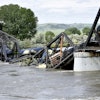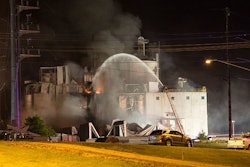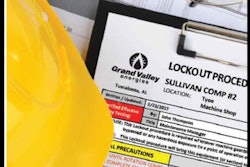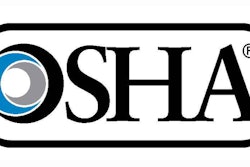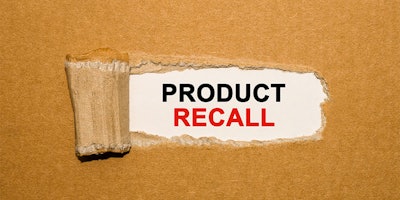
 Todd Gillman, Director of Claim Consulting, Aon Risk Solutions
Todd Gillman, Director of Claim Consulting, Aon Risk Solutions Tami Griffin, National Practice Leader — Food System, Agribusiness & Beverage Group, Aon Risk Solutions
Tami Griffin, National Practice Leader — Food System, Agribusiness & Beverage Group, Aon Risk SolutionsWhile maintaining product integrity is paramount for food manufacturers, distributors and retailers around the world, the succession of high-profile recall events in recent years underscores the need for executives at these companies to be fully prepared for a product recall.
As experience across the food sector has demonstrated, these events can have disastrous consequences, ranging from fines and penalties to enduring reputational damage to the brand and company, devastating loss of market share, extensive litigation and bankruptcy.
Risk managers in the food industry who participated in Aon’s 2017 Global Risk Management Survey identified damage to reputation or brand as their single most significant exposure; they ranked business interruption third and product recall fourth overall among top risks facing businesses in the food sector.
So, today it’s more critical than ever for food companies to assess and manage their potential exposures to recall events and related insurance claims. The following checklist of six product recall preparation and claim best practices may be helpful for food businesses to evaluate their current strategies and make sure they are covering all their bases.
1. Practice Diligence in Managing Supply Chains
Whether they source from domestic suppliers or from trading partners located around the world, food manufacturers, distributors and retailers need to practice diligence to achieve quality assurance throughout their entire distribution chain.
Besides conducting inspections and obtaining contractual assurance of compliance, more food companies are using new marking technology that will enable them to quickly trace any source of contamination along the entire manufacturing or distribution chain.
The ability to pinpoint and isolate any unfolding or potential problems quickly minimizes the impact of any event and enables the company to implement remediation measures on a timely basis.
2. Quantify and Manage Your Potential Exposure
Food companies should carefully analyze their supply chains to anticipate potential vulnerabilities, quantify the financial impact of any disruptions or integrity issues, develop contingencies and purchase appropriate insurance to strengthen resiliency and reduce exposures.
The ability to understand fully the implications of a disruption at any point in the supply chain gives a company clear direction in terms of where and how to allocate preventive resources, identify alternative suppliers and purchase available insurance.
Supply chain analysis requires not only looking at supplier integrity and reliability, but on geopolitical events, terrorism risk, security, pandemics (such as recent outbreaks of swine and avian influenza) and potential transportation and port issues. In recent years, many food companies involved in perishables have fallen victim to labor actions that have affected port operations and delayed shipments.
Even within U.S. borders, risks include the arrival of the Atlantic hurricane season, associated inland flooding, other weather events and related power outages. These all have the potential for creating health hazards at food storage, processing, distribution and retail facilities making them critical risks to include in any supply chain exposure assessments.
 Shutterstock
Shutterstock3. Understand How Insurance Will Respond
Many food companies purchase a wide range of insurance policies that might apply to incidents resulting in a recall, including: general liability, product liability, property, business interruption, contingent business interruption, product recall, crime and marine cargo and transit insurance.
Management teams need to know how and whether each policy will respond to an event. For instance, many businesses incorrectly assume general liability policies will provide protection against the financial consequences of a product recall.
While these policies are designed to provide protection against lawsuits brought against a company for a variety of causes, they typically provide no coverage for first-party losses such as deterioration of market share, business interruption or other impacts on a business arising from a product recall.
Meanwhile, under a stand-alone product recall insurance policy a company must meet certain criteria for the coverage to apply. For instance, an event, such as accidental contamination, adverse publicity, government action or extortion can trigger the coverage. Another test to determine whether coverage will be applied is that the event resulted (or would have resulted) in bodily injury.
In reviewing product recall coverage, note the policy structure, such as deductibles, which require out-of-pocket payments before insurance will apply, and sublimits that can restrict coverage for certain types of events.
At the same time, you should work with your insurance broker to identify and address any potential gaps in your insurance coverage. These typically relate to damaged or defective products, lost profits and other expenses.
Satisfying an insurance policy’s damaged product criteria may require validation through various tests, which the policy might specify as being provided by an independent laboratory rather than internally. Be sure to understand these requirements and comply with them.
Product recall policies also may require tracking from sourcing of ingredients to ultimate sale of the food product, including the documentation of any cross-contamination occurring in a production facility.
Businesses filing claims may also be required to validate disposal, such as by providing certificates of destruction and photos.
Product recalls typically involve claims of lost profits — both by the manufacturer and its customer. Check whether either is covered under the policy and the documentation required. Be aware of any duplication and the relevant dollar amounts, such as if both customer credits and inventory are valued at the selling price.
Expenses related to recalls that may also be covered under product recall insurance policies include: extra expenses, such as freight, warehouse and labor; brand rehabilitation expenses; crisis management; pre-recall planning; and claim preparation.
As noted in the prior section, companies should use risk quantification to assess coverage needs and validate that they have adequate protection for each exposure.
4. Be Prepared For a Product Recall Event
If they haven’t done so already, food companies need to develop comprehensive incident response and crisis management plans specifically related to a potential recall event.
The plans should be rehearsed periodically, refined as necessary and may be reinforced by carefully designed table-top exercises and other learning activities. All plans should be kept fully up to date with the names of individual contacts, roles and responsibilities.
In the food sector, product recall risk assessments and responses should be part of an overall business continuity plan and, if applicable, the company’s enterprise risk management initiatives.
The planning process should include checking with your insurer on any related services available under your coverage. For instance, some product recall insurers can help with logistics, communications companies and attorneys to help manage recall events
5. Know Claim Reporting Requirements Under Each Insurance Policy
Know when you need to notify an insurance company of a potential loss event and what information needs to be provided and when. Determine what records must be maintained and the level of detail required, especially for losses that may require destruction and disposal of inventory.
Although all businesses should follow best practices in managing insurance claims, they need to recognize that every claim is different and past history is no guarantee of future results. One reason is that insurance policies and their terms and conditions change from one year to the next. Thus, it’s critical to review insurance policies carefully as part of the planning process.
In preparing for claims, establish a core team of functional experts who will be involved with various aspects of the claim and who can assist your claims provider, insurance broker and internal or outside legal counsel with various aspects of the claim. These individuals begin with your risk management team and typically include your brand, product and marketing executives; accounting and finance; legal; supply chain, operations and quality assurance.
Designate an individual within your company or at your external claims provider to be responsible for communicating with all executives at your firm directly involved with various aspects of the claim, as well as the firm’s leadership team, its insurance broker and insurance company claims team.
There should be a constant flow of communication about the claim both in responding to requirements of the insurance company and in alerting your claims team and company leadership of the progress of the claim, as well as the status of the recall and any difficulties with the process or potential issues that may arise.
6. Get Outside Help if Necessary
Consider retaining an experienced claims consultant to help you prepare for a potential claim and manage any related loss event. Make sure they have experience within the food sector and with product recall loss events. Should a loss occur, many insurance policies provide coverage for fees associated with these valuable and timely services.
Despite a food company’s best efforts to achieve quality assurance and prevent product-related incidents, they need to be fully prepared to address the ever-present potential for a recall. These measures can go a long way to protecting themselves, their customers and their trading partners from any potential loss event.
About the authors
Todd Gillman is a regional director in Aon’s Claim Preparation, Advocacy and Valuations group, which provides global expertise in claims advocacy, commercial claims preparation, and pre-loss asset and business interruption valuation. He can be reached at [email protected].
Tami Griffin is National Practice Leader of Aon’s Food System, Agribusiness & Beverage Group, which provides risk management solutions and services to agriculture and food industry clients worldwide. She can be reached at [email protected].



